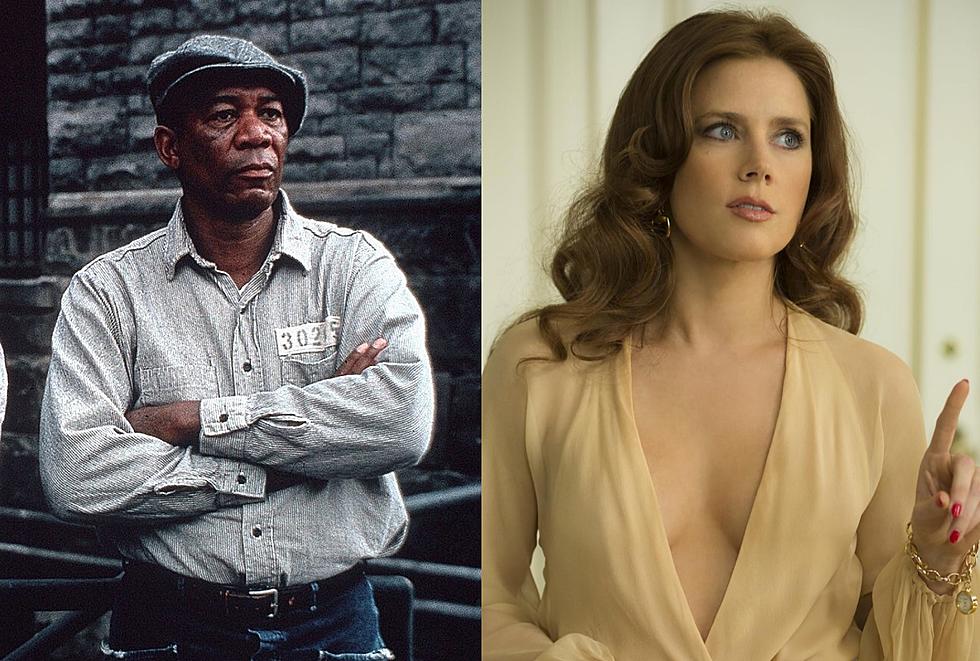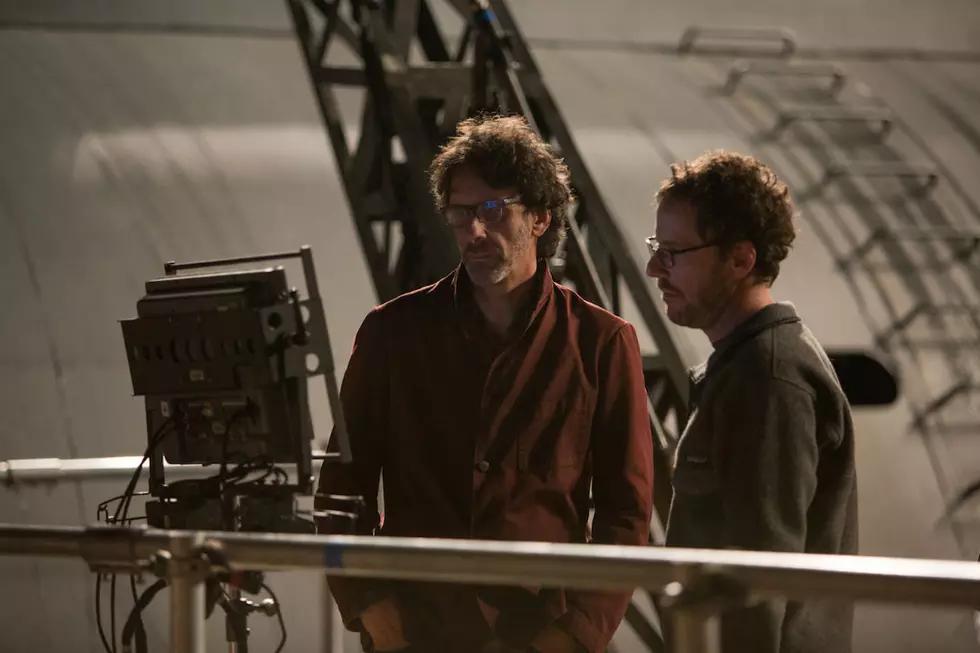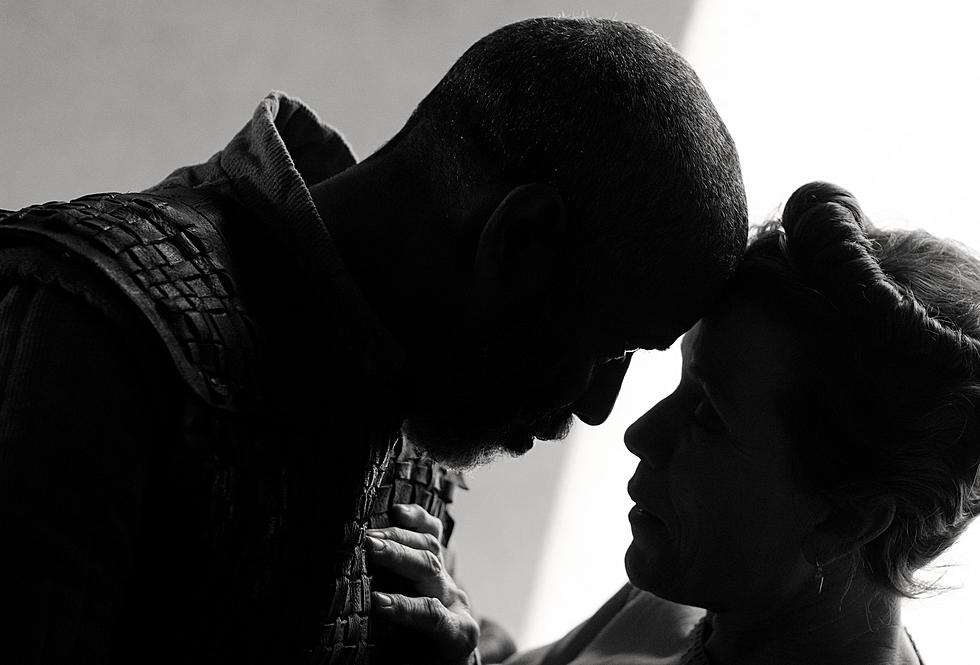
The Coen Brothers and the Intolerable Cruelty of Expectations
The Guardian tells me Hail, Caesar! is the Coen brothers’ “biggest bomb since Intolerable Cruelty” 13 years ago. CinemaScore, which polls opening night moviegoers and translates their reactions into letter grades, gave Hail, Caesar! a C-. Dirty Grandpa, in which Robert De Niro sticks his penis in Zac Efron’s face and calls him a lesbian, got a B.
Audiences have spoken, and they have spoken resoundingly. They do not want to hail Caesar.
In fairness, Hail, Caesar! has already made more money than a half-dozen other Coen films, including Barton Fink, Blood Simple, and A Serious Man. It’s not even their worst wide opening; in 1998, The Big Lebowski opened on 1200 screens and grossed just $5.5 million. And the Coens have never had great luck with CinemaScore; none of their movies have ever scored better than a B+ (and only O Brother, Where Art Thou? and True Grit earned that grade). They’ve even gotten a C- once before, for 1990’s Miller’s Crossing, a movie that’s often ranked amongst their best works today.
So it’s pretty disappointing that a movie as delightful and deep as Hail, Caesar! failed to connect with viewers, but it’s not shocking; the Coen brothers can be an acquired taste, and few of their movies work for a wide audience. What was surprising, at least to me, after I turned my CinemaScore observation about Hail, Caesar! and Dirty Grandpa into a tweet, were the responses from people who described themselves as Coen brothers fans who hated the movie. “I get the C- score,” one response on Facebook read, “Even as a Coen Bros fan, it was pretty f---ing bad.” “Absolutely agree,” another fan chimed in. “No hyperbole, probably one of their worst movies.”
Hail, Caesar! got a fair amount of support from my social media followers, but the slams from self-identifying Coens lovers were way more plentiful than I expected. (“I love the Coens and it's the worst film of theirs that I have seen.” “No question it is their worst film. I think even Joel and Ethan would agree on that fact.”) It’s one thing to walk into Hail, Caesar! cold and leave the same way; it’s another thing to know and like the Coens’ unique wavelength and to still get nothing out of a movie that seems, on the surface, one of their lightest and most accessible productions. How do you not enjoy Channing Tatum acting (and singing and dancing) like Gene Kelly? How do you love the Coens and hate Hail, Caesar!? That doesn’t compute.
This happens sometimes; fans collectively reject a director’s latest work. Typically it occurs when someone ventures out of their (and their audience’s) comfort zone. Audiences adore Martin Scorsese’s crime pictures; in the rare cases when he’s shifted to comedy (After Hours) or period romance (The Age of Innocence) or historical epic (Kundun), he’s found much less success. The same thing happened to Woody Allen when he followed Annie Hall, an Oscar-winning comedy for Best Picture, with Interiors, a Bergmanesque family drama. The movie confused longtime Woody Allen fans, and even some critics. (“Although I admire the performances and isolated moments, as well as the techniques and the sheer, headlong courage of this great, comic, film-making philosopher, I haven't any real idea what the film is up to,” wrote Vincent Canby in The New York Times.) Pretty much every time Stanley Kubrick released a movie after 2001: A Space Odyssey, it was met with mixed reviews and so-so box office. His filmography from that point on is one cult film after another.
Viewers come to expect a particular type of film from directors; filmmakers defy those expectations at their own peril. By the late 1970s a “Woody Allen movie” meant a very specific sort of picture — a concept that was utterly exploded by Interiors. It was only later, after his audience had grown acclimated to Allen’s dramatic interests, that he started finding success with less funny films. In 2002, I watched dozens of people get up and walk out of a Saturday afternoon screening of Steven Soderbergh’s Solaris. A lot of people apparently expected something very different from the director and star of Ocean’s Eleven. (The movie’s trailer might have had something to do with that.) When they didn’t get what they expected, they were furious.
The response to Hail, Caesar! looks pretty similar — except it’s a response that the Coens have received over and over. Take The Big Lebowski, which, like Caesar!, came on the heels of one of the Coens’ most critically acclaimed works; Inside Llewyn Davis in the case of the latter, Fargo in the case of the former. The Big Lebowski is less broad in tone than Hail, Caesar!, but in some ways it felt like even more of a departure for the Coens on the heels of Fargo’s dark, supposedly-based-on-a-true-story thriller. It got some of the weakest reviews of the Coens’ career. Though Roger Ebert later inducted Lebowski into his Great Movies pantheon, he only gave it three stars on its initial release; his partner, Gene Siskel, was even less kind; the two argued over the movie on a 1998 episode of Siskel & Ebert. Jeff Vice said it was “bound to underwhelm even their most fervent admirers”; Kenneth Turan of The Los Angeles Times complained about the slack plotting and lack of “coherence.”
Turan also noted that the Coens had “alternated between pictures where the connection to audiences was made with exhilarating success (the recent Fargo) and others (the completely baffling The Hudsucker Proxy) where all circuits were down.” In fact, it’s even more specific than that. The movies that Turan dislikes, the Coens’ loopiest comedies, tend to immediately follow their bleakest dramas. Hudsucker Proxy came after Barton Fink, the depressing flip side of Hail, Caesar!’s sunny Hollywood. The Coens partnered the violent crime thriller Blood Simple with the slapstick-y crime comedy Raising Arizona; they followed the noirish The Man Who Wasn’t There with the screwball Intolerable Cruelty. And they went from No Country for Old Men, maybe their most brutal (and award-winning) picture, to Burn After Reading, maybe their goofiest film.
That might look like a predictable pattern, but only in hindsight. It’s one of my favorite things about the Coen brothers — their unpredictability. From one movie to the next, you never know quite what a Coens production will be about, or where or when it will be set. Even though they often use the same repertory company of actors, even though they tend to work with the same director of photography (Roger Deakins) and editor (i.e. their pseudonymous selves), no two Coen brothers movies look exactly alike.
Alfred Hitchcock sometimes talked about how he felt constrained by the phrase “Hitchcock movies.” He would have liked to make different types of films, but he believed his audience wouldn’t let him. “I am a typed director,” he once said. “If I made Cinderella, the audience would immediately be looking for a body in the coach.” To me, part of what makes the Coens such exciting and vital filmmakers is the fact that they have refused to let themselves get pinned down in that way; they are constantly in the process of redefining what a “Coen brothers movie” is. No matter what you expect from a Coen brothers movie, odds are you aren’t going to get it (unless you’re expecting Frances McDormand and a cynical outlook about life).
Apparently, though, that’s something that frustrates a lot of people. Audiences complain about the glut of sequels and remakes, and claim they want more new and original movies, but the box office numbers rarely bear that out. More often than not, viewers vote for familiarity. In some situations, that means characters they recognize. In others, genres they know or actors they like. And sometimes that means directors doing things they’ve seen those directors do before.
There’s something to be said for filmmakers with signature style, who mine the same territory in film after film. (More power to you, Terrence Malick fans.) But sometimes I think we undervalue versatile directors — folks like the Coens or Sidney Lumet or Billy Wilder — not because they’re bad, but because their directorial signatures aren’t always so easy to spot or so thematically static. The Coens clearly like to keep audiences on their toes. But some audiences, it seems, prefer a bit more comfort.
More From ScreenCrush









